Question And Answer
Publications
Articles, publications, books, tools and multimedia features from the U.S. Institute of Peace provide the latest news, analysis, research findings, practitioner guides and reports, all related to the conflict zones and issues that are at the center of the Institute’s work to prevent and reduce violent conflict.
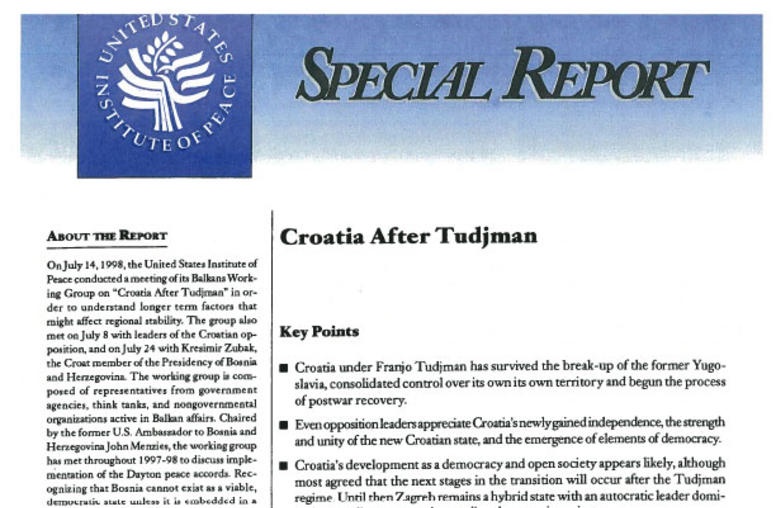
Croatia After Tudjman
Recognizing that Bosnia cannot exist as a viable, democratic state unless it is embedded in a region that is itself stable and democratic, the Institute has begun a Bosnia in the Balkans Initiative to explore the prospects for regional political and economic development. The Balkans Working Group on "Croatia After Tudjman" met in order to understand longer term factors that might affect regional stability. The recent meeting on Croatia is one component of this work, which has included separ...
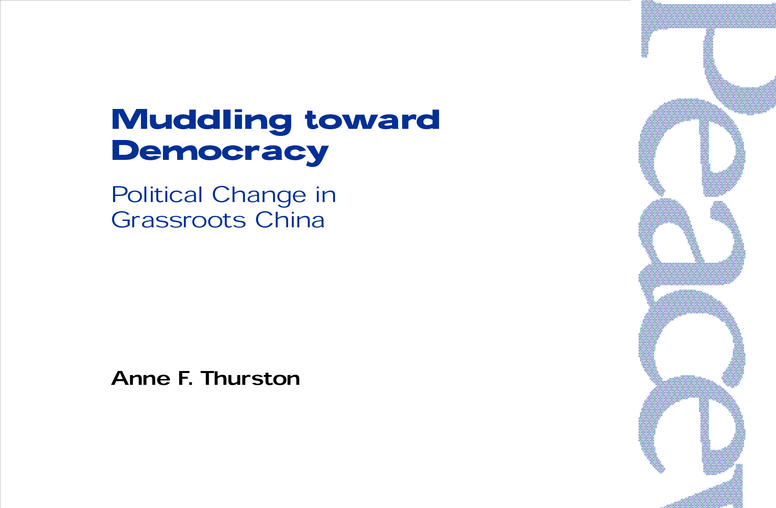
Muddling toward Democracy: Political Change in Grassroots China
Among the most significant political reforms implemented by the Chinese government since 1989 is the introduction of competitive elections into rural villages. This study, based largely on fieldwork conducted between 1995 and 1997, examines China's efforts to bring competitive elections to the country's rural areas and attempts to explain why local democracy has proved more successful in some places than in others.
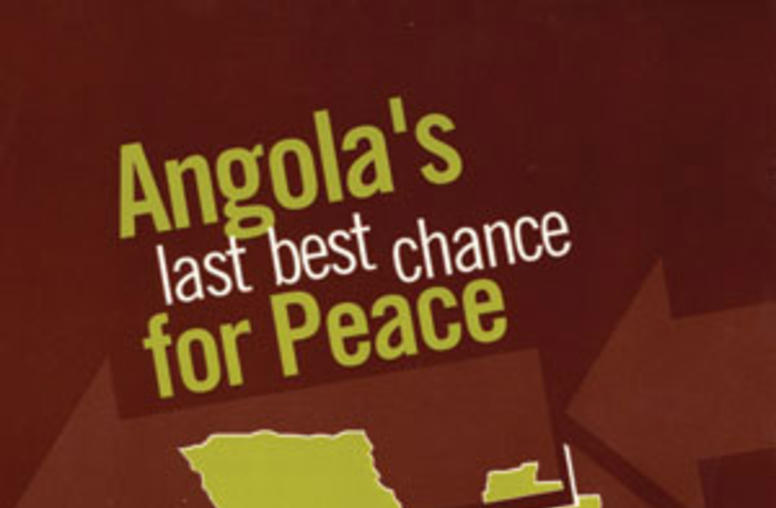
Angola's Last Best Chance for Peace
Since independence, Angola has witnessed twenty-plus years of civil war and a string of broken peace agreements. “It is not difficult to be a cynic about Angola,” notes Ambassador Paul Hare. Yet Hare and other dedicated diplomats have continued to persevere in their quest for a lasting solution to the Angolan conflict.
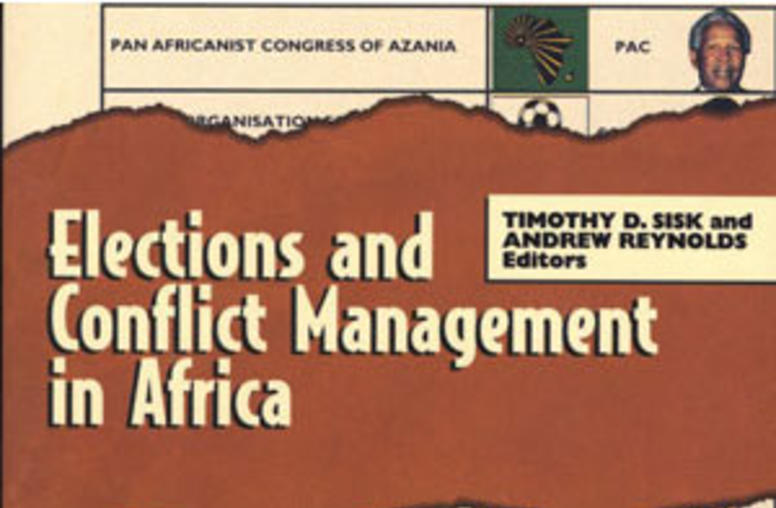
Elections and Conflict Management in Africa
Elections have emerged as one of the most important, and most contentious, features of political life on the African continent. In the first half of this decade, there were more than 20 national elections, serving largely as capstones of peace processes or transitions to democracies.
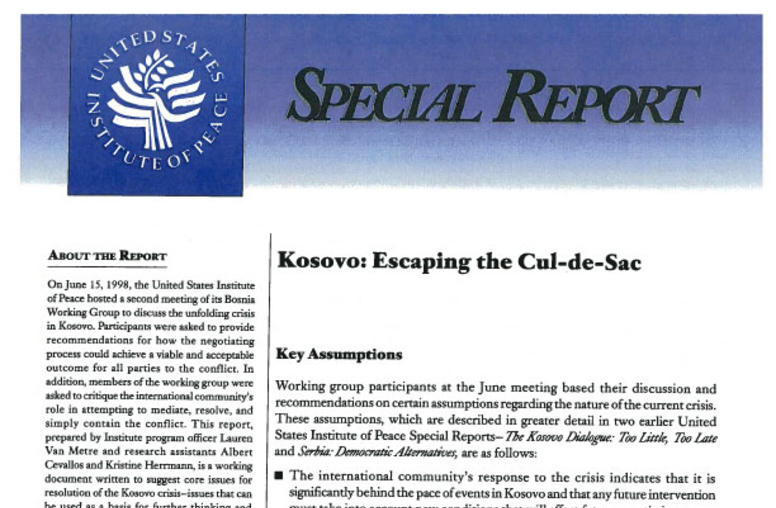
Kosovo: Escaping the Cul-de-Sac
The United States Institute of Peace hosted a second meeting of its Bosnia Working Group to discuss the unfolding crisis in Kosovo. Participants were asked to provide recommendations for how the negotiating process could achieve a viable and acceptable outcome for all parties to the conflict. In addition, members of the working group were asked to critique the international community's role in attempting to mediate, resolve, and simply contain the conflict.
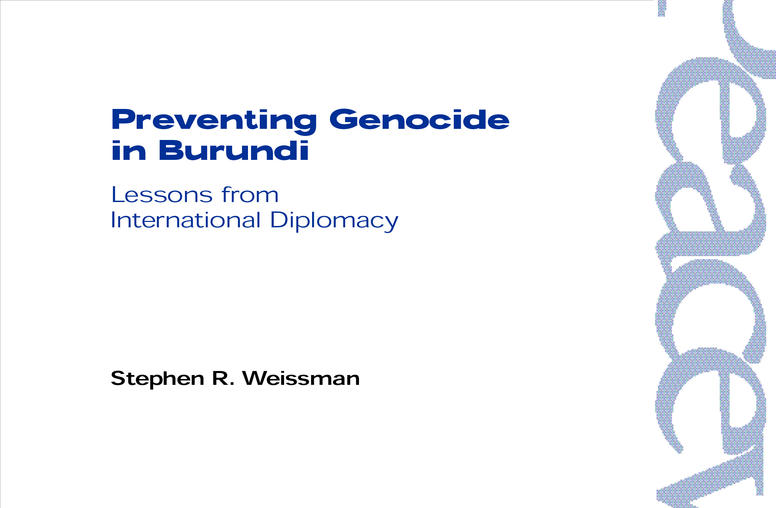
Preventing Genocide in Burundi: Lessons from International Diplomacy
Since 1993, interethnic violence between the 15 to 20 percent Tutsi minority and the 80 to 85 percent Hutu majority in Burundi has taken an estimated 150,000 lives. An examination of the international response to the crisis furnishes valuable lessons for peacemaking in Burundi and other areas of genocidal conflict.
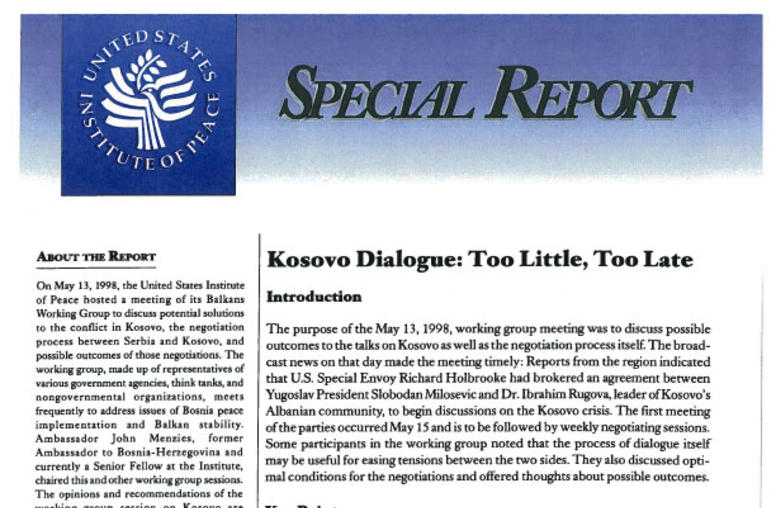
Kosovo Dialogue: Too Little, Too Late
The United States Institute of Peace hosted a meeting of its Balkans Working Group to discuss potential solutions to the conflict in Kosovo, the negotiation process between Serbia and Kosovo, and possible outcomes of those negotiations.
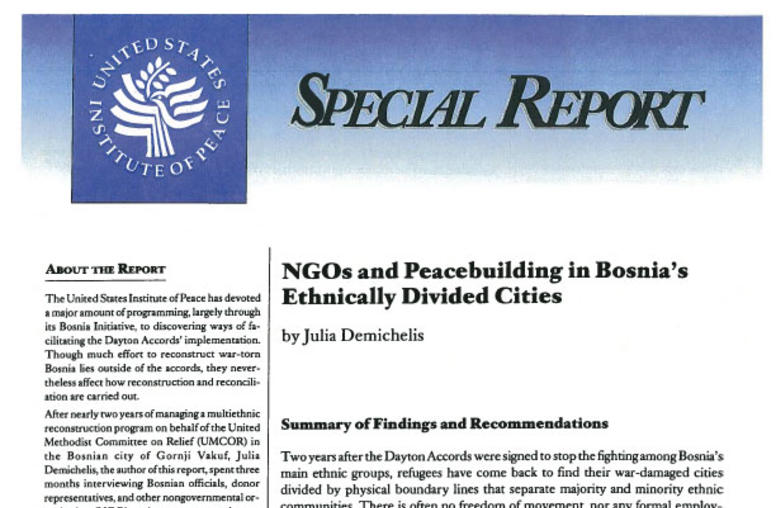
NGOs and Peacebuilding in Bosnia's Ethnically Divided Cities
This report begins with an overview of the political boundaries in many of Bosnia's municipalities that have prevented postconflict reconstruction and reconciliation. The next section describes effective and ineffective strategies among aid donors and humanitarian-relief NGOs operating in these locales, followed by a case study of successful grassroots programs in the city of Gornji Vakuf. The report concludes with recommendations for NGOs and donor organizations.
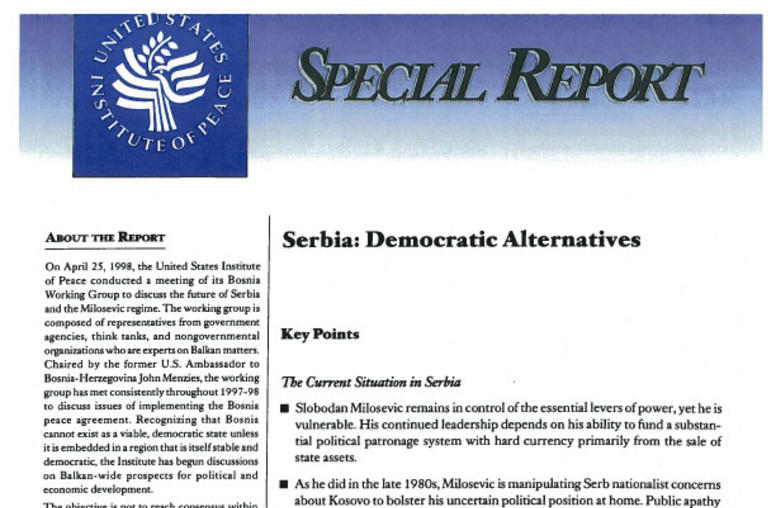
Serbia: Democratic Alternatives
On April 25, 1998, the United States Institute of Peace conducted a meeting of its Bosnia Working Group to discuss the future of Serbia and the Milosevic regime. The Institute's objective is not to reach consensus within the group, but to explore issues and options.
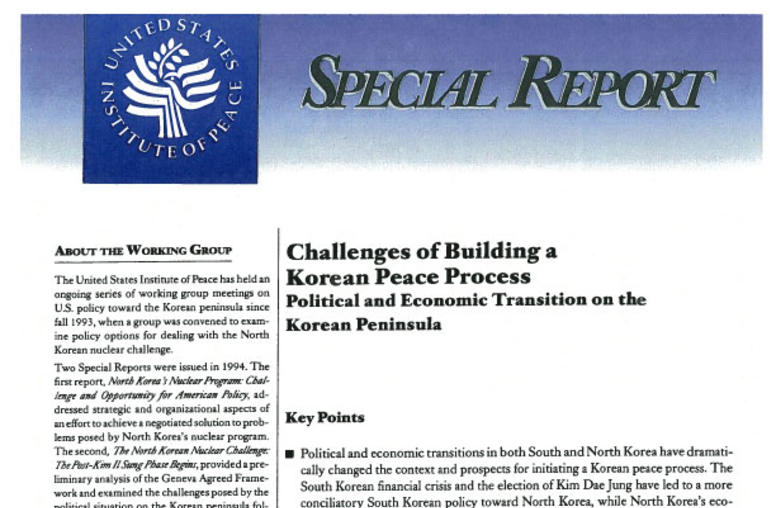
Challenges of Building a Korean Peace Process: Political and Economic Transition on the Korean Peninsula
This Special Report, authored by Program Officer Scott Snyder, is based on meetings of the working group that focused on political, economic, and security developments in North and South Korea.